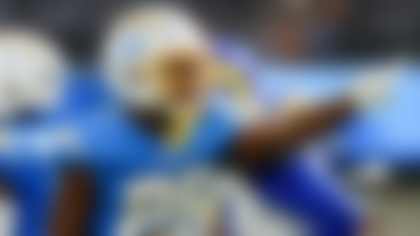BATON ROUGE, La. -- An executive with the group that oversees the Louisiana Superdome and New Orleans Arena warned lawmakers Tuesday that the state must find $27.5 million next year to fulfill contracts that keep the Saints and Hornets in New Orleans.
The state pays the two professional teams each year to retain the clubs, subsidies the team owners have said are needed to make operating in the relatively small New Orleans market worthwhile.
The money comes from the budget of the Louisiana Stadium and Exposition District or LSED, which operates the stadium and the arena where the NFL and NBA teams play.
Doug Thornton, senior vice president of SMG, the company that manages the Superdome and the Arena, said the LSED won't bring in nearly enough for the fiscal year starting July 1 to cover the payments.
"We have revenues that are not sufficient to cover the debts," Thornton told members of the House Appropriations Committee.
Both deals were negotiated under then-Gov. Mike Foster. The state's 10-year deal with the Saints is the largest of the two and runs through the 2010 season, guaranteeing the NFL team $186.5 million in payments.
The state now owes the Saints some $23.5 million annually -- atop the NFL team's earnings from ticket sales, concessions, parking and other items.
The Hornets' deal doesn't include flat payments but involves payments based on performance and team income. The state needs an estimated $7 million to pay the Hornets next year.
If the state didn't make the payments to the teams, the Saints and Hornets could leave New Orleans without a penalty.
But Thornton said the troubled economy would make it difficult for a team to move, and both the Saints and Hornets have expressed a commitment to New Orleans.
Hugh Weber, the Hornets team president, said, "We consider ourselves a partner of the state. ... We're a revenue-producing business that provides jobs and opportunities for Louisiana. We are working with state officials to continue serving as an asset for the region."
Currently, the LSED has about $3 million in revenue to cover the direct cash payments -- or $27.5 million less than what is needed to pay both teams, Thornton told lawmakers. He said options could include shuffling existing tax dollars or raising new taxes to cover the shortfall.
That leaves Gov. Bobby Jindal, who opposes tax increases, to struggle with state lawmakers on ways to fill the gap in the fiscal year starting July 1. The state is facing a total budget shortfall forecast to top $1.2 billion.
Jindal said Tuesday he intends for the teams to stay but added, "It's too early for the state to know what we can and cannot afford for the next fiscal year."
State lawmakers questioned whether the state should continue pumping money into the team payments and asked Thornton for other ideas.
"I know it's important, but can we afford it?" said Rep. Tom McVea, R-Jackson. "We've just got to have some relief, and I think you know that."
Meanwhile, Jindal's administration is in negotiations with the Saints seeking a new contract to keep the team in Louisiana past 2010.
Thornton said the state hopes to re-negotiate with the Saints before April 1, the deadline for NFL teams to apply for the 2013 Super Bowl. A long-term deal between both is needed to be in the running to host future Super Bowls.
In a new deal, Thornton said, the state hopes to "rebalance the risk," moving away from direct cash subsidies. In exchange, he said the state could make improvements to the Superdome, like adding more suites, seats and concession areas to help the Saints earn more from ticket, food and drink sales.
But lawmakers questioned where the state would find money to upgrade the Dome.
Copyright 2009 by The Associated Press



